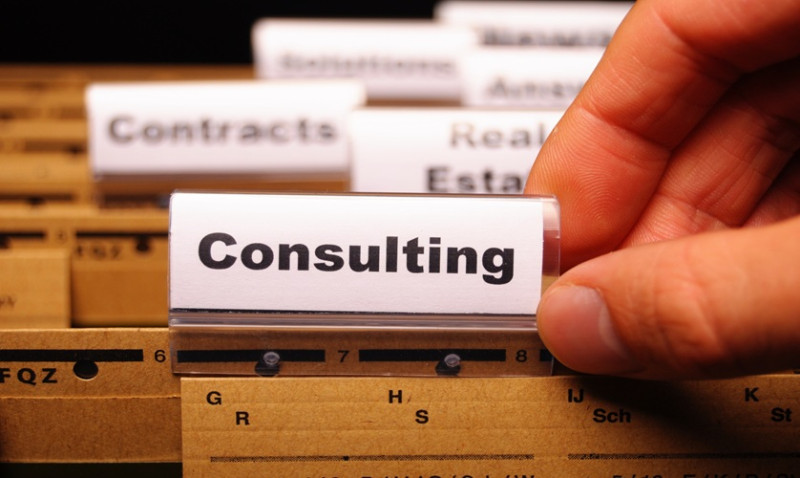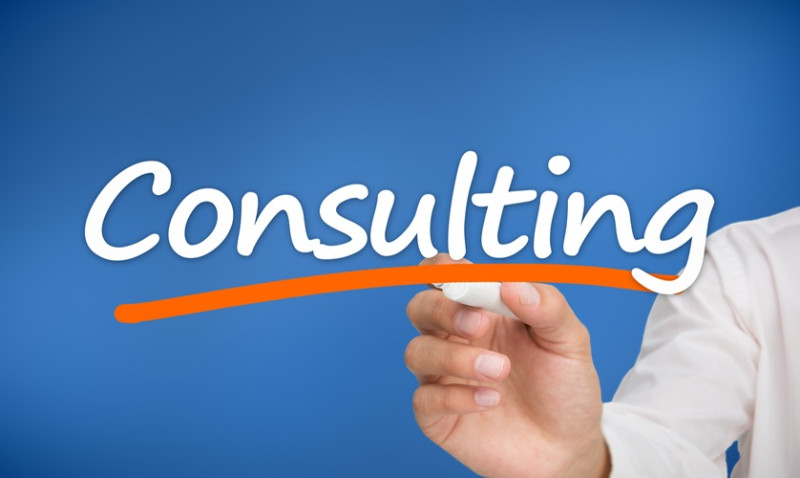
As we race toward 2025, small businesses in the UK are facing a tidal wave of changes in how marketing is done. Whether you're a DIY enthusiast launching a side hustle, a young professional redesigning your home and looking for inspiration, an architect looking to stand out in a competitive market, or a professional tradesman attracting more local clients—smart marketing will be your most powerful tool. But how exactly will small businesses stay ahead when competition is fierce and attention spans shorter than ever?
In this post, we explore how the savviest small businesses will evolve and thrive in 2025 by embracing SMART (Specific, Measurable, Achievable, Relevant, and Time-Bound) marketing strategies. These aren't just buzzwords—they'll form the blueprint for success in a rapidly changing digital world.
1. Hyper-Personalisation Will Be the Norm
Gone are the days of generic email blasts and one-size-fits-all campaigns. In 2025, successful small businesses will harness data to create hyper-personalised experiences. Whether it's customised email sequences, retargeted ads, or AI-powered product recommendations, businesses will talk directly to the individual, not the crowd.
For example, if you're a small furniture design studio targeting young professionals in Birmingham or Brighton, you'll tailor your offers based on customer behaviour—what rooms they've browsed, what materials they've clicked on, and what budget they've searched under. It’s about making each touchpoint feel like it was made just for that person.
Thanks to advanced CRM systems and affordable AI tools, even the smallest business will be able to personalise at scale. Tools like Mailchimp’s Smart Segmentation or HubSpot’s predictive lead scoring will become staples on the digital toolbelt.
And the key? Making sure the content is relevant. A professional tradesman in Manchester searching for high-end tile supplies shouldn’t be shown budget paint. Instead, they’ll be served tailored ads showcasing premium tiling options, with inspirational case studies and testimonial-led video content.
2. Voice and Visual Search Will Shape Discovery
With smart speakers in more than 50% of UK homes and visual search engines like Google Lens becoming the norm, customers are quickly changing how they search. “Find rustic oak dining tables in Leeds” or snapping a photo of a feature wall to find similar paints will be second nature in 2025.
For small businesses, this means optimising for voice and image-based search. Your product listings and service pages will need to include long-tail, conversational keywords. Think “Where can I find a reliable plasterer near Guildford?” or “soft sage green paint for bedrooms.”
Image optimisation will also become essential. That means every product photo will need detailed alt text, title tags, and schema markup to make it easily discoverable through platforms like Pinterest and Google Images.
Architects and designers, in particular, will benefit from this, driving organic traffic by publishing visually rich content. Before-and-after galleries, mood boards, and 360° imagery will dominate their marketing strategy.
3. Social Commerce Will Become a Major Sales Channel
Social media platforms are no longer just for brand awareness—they're storefronts. In 2025, platforms like Instagram, Facebook, TikTok, and even Pinterest will become major sales channels through seamless social commerce integrations.
Shoppable posts, livestream product demos, and influencer partnerships will drive direct revenue for small businesses across the UK. Imagine a local decorator in Glasgow livestreaming a “Room Reveal” on TikTok, with direct links to the tools, paints, or finishes used in the makeover. Consumers don’t have to search—they can buy right from the app.
As trust between creator and buyer grows, the role of authentic video content will be critical. Brands that can connect with niche audiences (like kitchen fitters, home office designers, or eco-conscious remodelers) will outperform larger competitors that lack individualized messaging.
Expect to see in-app checkout experiences, live Q&A sessions during product reveals, and comment-to-buy functionalities becoming an everyday shopping experience by 2025.
4. AI-Powered Content Creation Will Level the Playing Field
Creating consistent, high-quality marketing content has always been a challenge for small teams. But AI is changing that rapidly. In 2025, smart small businesses will use AI tools to plan, write, design, and distribute content faster and more affordably.
Tools like ChatGPT, Jasper, and Canva’s Magic Write will allow a local tradesman in Bristol or a renovation studio in Kent to publish professional-grade marketing materials with minimal overhead costs. A single AI tool can help create a blog post, product description, and an email campaign within a single afternoon.
But AI doesn't stop at content. Expect predictive analytics to guide what type of content should be created based on past performance. If videos showing quick-home plant wall installations go viral, the tool will suggest you follow it up with a toolkit guide, Instagram reel, and downloadable PDF checklist.
However, authenticity will still matter. Businesses that combine smart automation with their personality—showing the faces, voices, and real stories behind the brand—will win trust and loyalty in a saturated market.
5. Local SEO Will Reign for Tradesmen and Physical Businesses
For businesses offering physical services—like plumbing, house painting, or bespoke carpentry—Local SEO will be more vital than ever. When someone asks, “Best tiler near Bath” or “Interior designer for small London flats,” you need to be in the top three map listings.
That means claiming and optimising your Google Business Profile, collecting fresh reviews weekly, embedding maps on your website, and regularly updating your business hours, photos, and services offered.
Local marketing won’t stop at Google. Apps like Nextdoor, Houzz, and Checkatrade will become even more important. SMART small businesses will maintain active profiles across these platforms, helping them show up wherever people are actively looking.
Local partnerships—like teaming up with a tile supplier showcased on your site—will help boost backlinks and authority, while also building cross-referrals between small UK-based businesses.
6. Data-Driven Marketing Strategies Using SMART Goals
In 2025, the most successful marketing won’t just come from good ideas—it will be fuelled by data and guided by SMART goals. These are:
- Specific: “Get 30 new customer leads per month from organic Instagram posts.”
- Measurable: Track post engagement, referral traffic, sales generated.
- Achievable: Use data from past quarters to set realistic benchmarks.
- Relevant: Aligned with your brand’s customer base and offerings.
- Time-Bound: Deadline-driven for momentum and accountability.
Whether you’re a young tradesperson growing a solo operation or a family-run kitchen design studio, SMART goals will make your marketing more intentional and less dependent on trial-and-error. You’ll use marketing dashboards—even simple ones via Google Looker Studio or Hubspot—to gauge performance weekly, not annually.
With plenty of affordable analytics tools available, there's no excuse not to track what’s working. SMART small businesses in 2025 will act nimbly on insights, and they’ll adjust their strategies in real-time based on performance data.
7. Ethical Branding and Sustainability Messaging Take Centre Stage
UK consumers are increasingly looking for brands that align with their values. In 2025, sustainability, ethical sourcing, and transparency will play a big role in marketing strategy. Smart small businesses will showcase these values—not as gimmicks, but as central themes of their brand stories.
Say you're a recycled materials specialist or an eco-friendly painter. Show exactly where your materials come from, what happens to your waste, and how your products contribute to a reduced carbon footprint. Inbound marketing will include blog posts, certification badges, and “day in the life” videos that showcase these values in action.
For designers and architects, this may mean collaborating with like-minded suppliers or offering carbon calculation estimates for specific projects. Sustainable storytelling will resonate deeply—especially with Gen Z and millennial homeowners. Ethical marketing isn’t a trend—it will be part of how business is done.
Final Thoughts: The Future Is SMART and Strategic
As digital transformation accelerates, SMART small business marketing in 2025 won’t just be about being online—it will be about being intentional, personalised, measurable, and relevant. Whether you’re trying to reach homeowners renovating their first flat or build credibility as a trade expert in your town, the key will be working smarter, not harder.
From AI-toolkits to hyper-local SEO and authentic storytelling, the tools are more accessible than ever. Now, it’s a matter of adopting the SMART mindset and committing to continuous learning, agility, and customer-first marketing.
The future belongs to small businesses who think BIG—and SMART.





